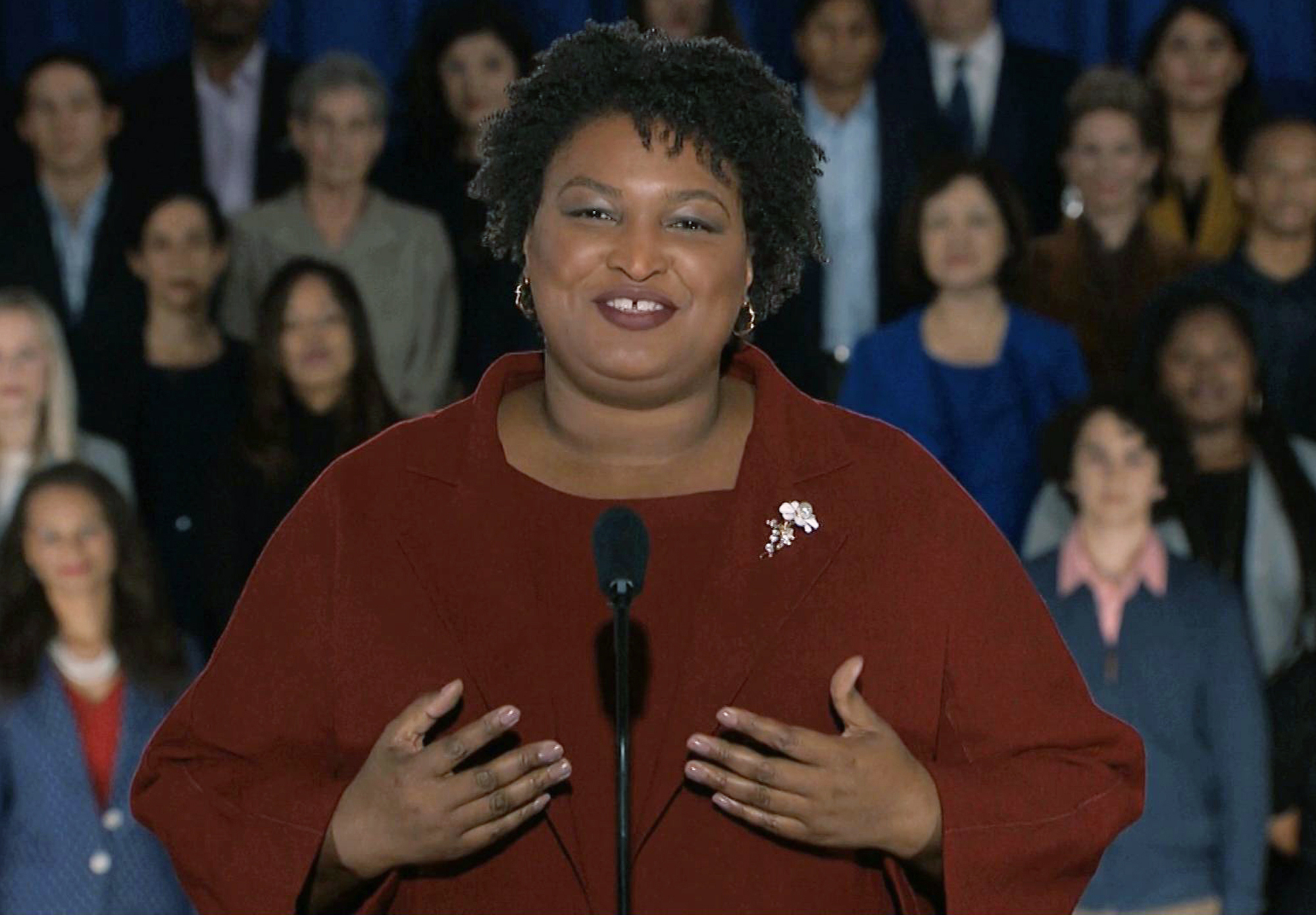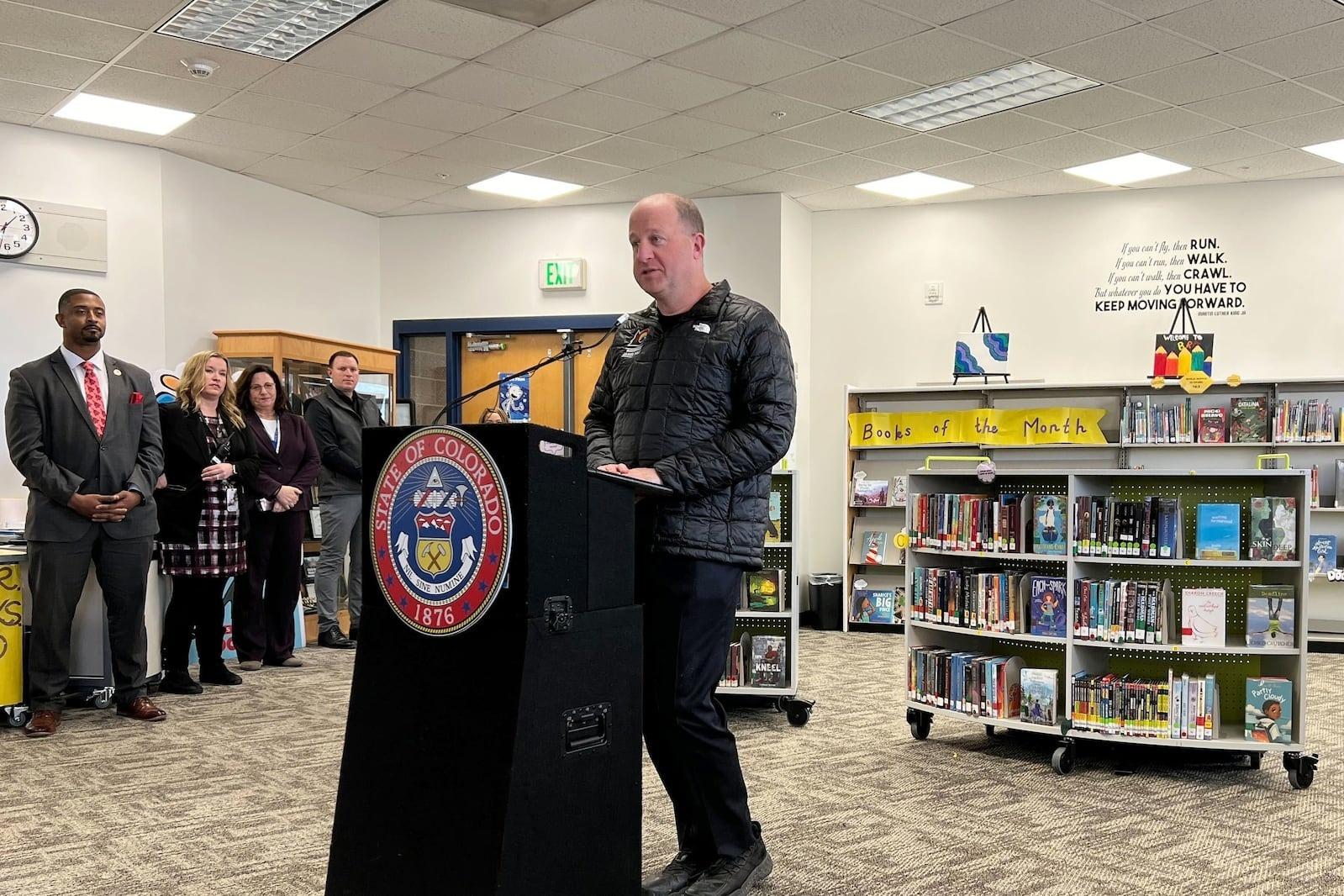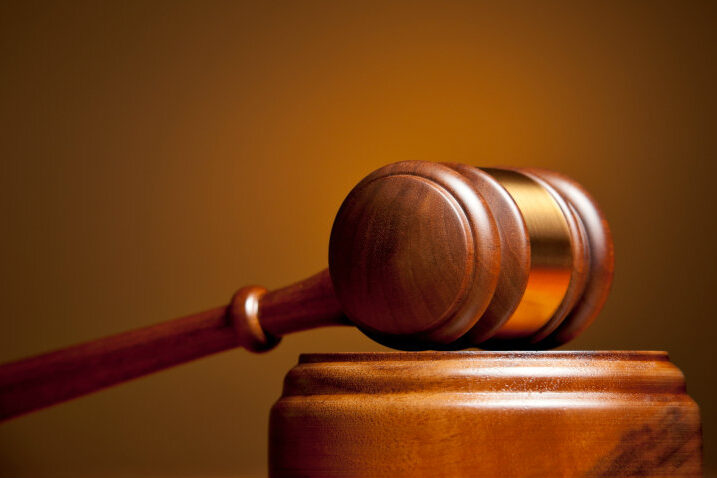
For Stacey Abrams, voting access is not about Democrats and Republicans, it's about inclusiveness. “The process of voting should be nonpartisan,” the voting rights activist, former Georgia gubernatorial candidate and author told Colorado Matters’ Ryan Warner. “And it should be a patriotic belief that every eligible American citizen should have unimpeded access to the right to vote."
According to Abrams, who was visiting Colorado as part of a national speaking tour, excluding voters is what spurred a series of new voting laws across the country in the aftermath of the 2020 presidential election. According to the Brennan Center for Justice, 18 states, most of them under Republican control (including Abrams' native Georgia), passed a combined 30 such bills. Abrams says the point of those bills is to suppress the voting rights of citizens who threaten what has long been regarded as the status quo.
"It's protecting the vote from the undesirable. And it's defending the integrity of the vote for the necessary few," she said. "Unfortunately in Georgia, that historically has meant distancing the right to vote from communities of color, beginning with African-Americans. But because we have burgeoning communities of Latino and AAPI voters, as well as Native American voters, we have seen voter suppression visited upon all of these communities and become increasingly worrisome and worse."
This interview has been edited for clarity and length.
Ryan Warner: Denver inherited last July's baseball All-Star Game after your home state, Georgia, passed a slate of voting restrictions. You opposed that legislation, but you also opposed the game being moved from Atlanta. I'm curious to learn why you were against that sort of boycott.
Stacey Abrams: Boycotts have an emotional, and over time, a political and economic effect. The challenge often with boycotts is how long it takes and who gets hurt in the process. My belief is that the leaders who made the choice to restrict access to the right to vote, to engage in more aggressive voter suppression and to thumb their noses at the reality of how these laws were going to affect their voters, they would not be persuaded by an economic loss, because for them this is about the pursuit of power. And when power is being balanced against the needs of others, a boycott sometimes is just ineffective. It could work.
But for my purposes, I'd rather keep the communities that are here and engage them, and have them keep fighting, than to use an economic boycott that would likely result in their exodus and thus a tightening of the grip of power of those who would deny us democracy.
RW: So do you think that moving the game wound up not achieving its ends?
SA: I think for Major League Baseball the goal was to signal its dissatisfaction with any leadership that would say that attacking communities of color, stripping them of their rights to vote in very discernible ways was not acceptable. I understood why Major League Baseball did it. I didn't encourage it, but I appreciated their willingness to stand up and say, we think that what you are doing is wrong, and we will have the power of our convictions and go to a state that has better laws and is doing a better job of preserving democracy. And that is a truth when it comes to comparing Georgia and Colorado.
RW: Let me have you unpack that for us. What do you see in Colorado that you would like replicated elsewhere, specifically?
SA: First and foremost, Colorado's very thoughtful and universal access to being able to vote by mail. That is not something we enjoy in Georgia. And in fact, Georgia has retrenched what had been a fairly useful system. [Colorado has] 15 days of in-person early voting. Georgia has 17 days, but 15 days of early voting with the ability to universally vote by mail with the ballot sent to you automatically without having to jump through hoops or put your identities at risk. You allow for comfort teams to give food and water to those standing in lines. Lines you do not have because people have the ability to either vote early in person on election day or vote by mail.
You also, in the state of Colorado, have been moving forward in trying to find additional innovations: you allow for drop boxes, but you also allow for mobile voting and you are encouraging more and more people to access the right to vote.
Sadly, in Georgia, we have seen a retrenchment, as I said earlier, on the right to vote because to the minds of those who are passing these laws, inconvenient people voted: mainly people of color and young people. And I greatly prefer the direction that Colorado is moving, which is to expand access to the right to vote [for] qualified citizens, making certain that our democracy is enlivened and strengthened, as opposed to eroded.
RW: Just to put a finer point on what has occurred in Georgia. Governor Brian Kemp signed into law numerous voting restrictions, including limiting the number of ballot drop boxes in counties that include and surround Atlanta, which contains more than a third of the state's Black population. Texas and Florida have passed similar restrictions. In total, 18 states, most of them under Republican control, have passed a combined 30 such bills, according to the Brennan Center for Justice.
You have made specific reference to people of color. It makes me think of a conversation I had with Carol Anderson, professor of African-American studies at Emory University and the author of “One Person, No Vote: How Voter Suppression Is Destroying Our Democracy.” She told me that history shows that racist voting laws are almost always wrapped in the message of protecting the vote. Do you see that happening here?
SA: Absolutely. I can never say something better than the inimitable Dr. Carol Anderson, but it's protecting the vote from the undesirable and it's defending the integrity of the vote for the necessary few. Unfortunately in Georgia, that historically has meant distancing the right to vote from communities of color, beginning with African-Americans. But because we have burgeoning communities of Latino and AAPI voters, as well as Native American voters, we have seen voter suppression visited upon all of these communities, and become increasingly worrisome and worse.
RW: Former President Trump continues to fundraise on the idea that the election system is vulnerable and unfair. The election was in fact secure, and court after court after court dismissed claims to the contrary. But this belief about the outcome of the election and its security has become an identity for people. As if what they believe about the election is a test of who they are, of the party that they are a member of, or how they see themselves. Is there any way to extricate those things?
SA: I believe there is. And sadly, the extrication tends to happen at the tail end of demise. As long as these laws are targeting those to whom you have no allegiance or affiliation — as long as the targets are "others" — then you are more than willing to frame your identity around it. But the challenge with authoritarianism, which is the path that we're on, is that eventually the targets turn to someone else. When they have succeeded in quelling those they have most fundamentally disliked, they then turn to the next group. And in Georgia, we experienced that where we had a broken system and have a broken system that may have intentionally targeted communities of color and has been assiduous in its denigration of access.
But it also, in the primary in 2020, revealed itself to be broken for everyone. And that's when you suddenly saw Republicans and Democrats decrying the execution of the elections. This is going to maximize itself on such a national scale if we do not do something about it. And so yes, there are those who will eventually find themselves admitting the error of their ways, but it will be at the end of our democracy and I think too late.
RW: It sounds to me like your challenge — I don't want to put words in your mouth — your challenge may be to connect this issue to everyone; those who may not feel sidelined by whatever laws are being passed.
SA: Absolutely. And that's one of the reasons the work I do is not intentionally for a certain party. I am unambiguously a Democrat. That is my political identity, but my first identity is as an American citizen. To the extent that we can set aside partisanship in the process — we can get to it in the selection — but the process of voting should be nonpartisan. And it should be a patriotic belief that every eligible American citizen should have unimpeded access to the right to vote. That should be a truism. And for some, it was until they saw who was showing up to use the right. But I believe that if we continue to hit the drum beat that while our democracy is resilient, it is not impervious to harm, we will eventually get people to realize that protecting the right to vote for others means protecting it for yourself.
RW: This is a question that requires you to wear your Democratic hat. We saw from the recent recall election in California that Democrats, in many ways, are still running against Former President Trump. Do you think that's the right strategy for your party?
SA: I think it's less about Trump as a person and more about the symptomatic behaviors that have now infected Republican belief systems. I do not mind arguing value systems and processes with people who do not share my political belief, but what is deeply problematic is when those arguments lead to people's lives being put in jeopardy. What Governor Newsom had to advocate against, and what we are watching Terry McAuliffe demand in this election, is that we recognize that while a specific person did not get reelected, his value system and his behaviors have infected the party in some ways. And it is incumbent upon all of us, especially Democrats running for office or casting ballots, to recognize that what began with a person has now become a culture. And that culture is something we have to illuminate and argue against if we are to preserve, not only access to our democracy, but preserve the progress that we need to make as a nation.









